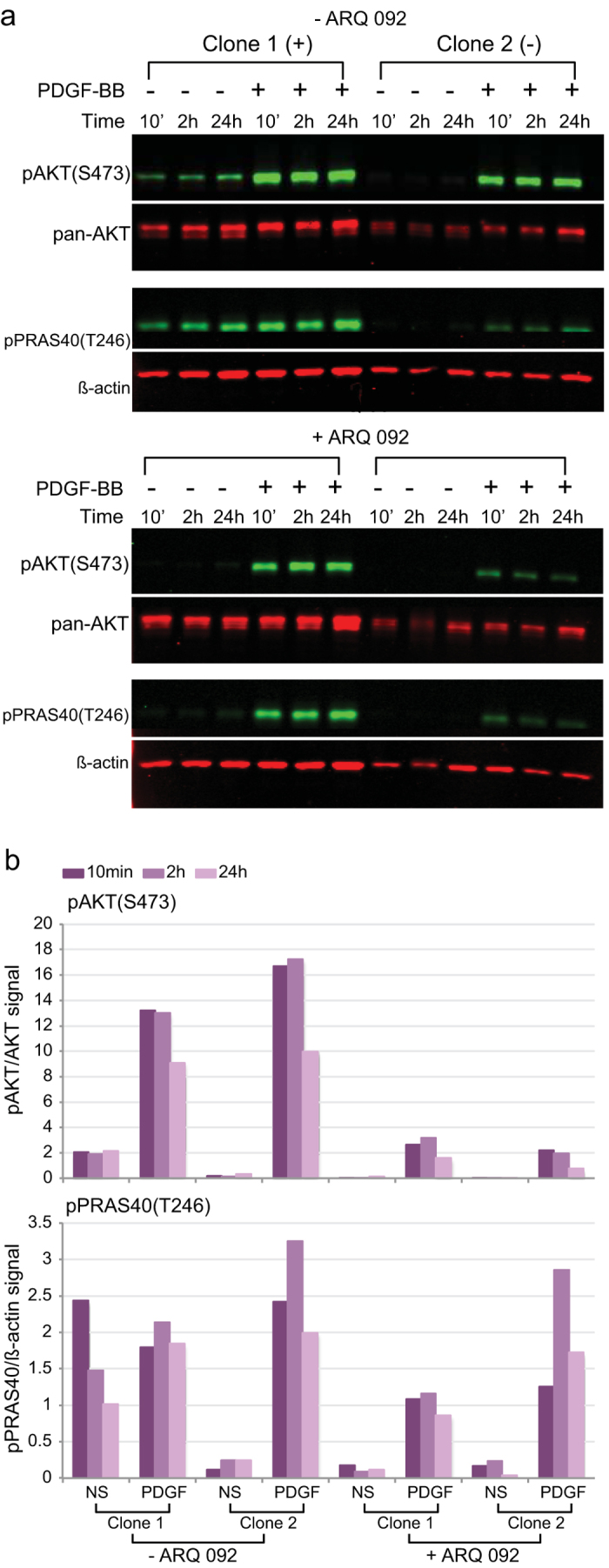Figure 5. Platelet-derived growth factor-BB (PDGF-BB) stimulation in cells treated with ARQ 092 resulted in elevated levels of pAKT and pPRAS40.

Mutation-positive (clone 1) and negative (clone 2) SCC were serum starved, treated +/−ARQ 092 and stimulated with PDFG-BB as described in the Methods. Cells were collected at 10 minutes, 2 hours, and 24 hours after PDGF-BB addition. (a) Infrared images of western hybridizations using the indicated antibodies. (b) Histograms of the ratios of the infrared signals for each antibody pair. PDGF-BB stimulation resulted in a 12- to 70-fold increase in pAKT in ARQ 092-treated clone 1 and 24- to 50-fold increase in ARQ 092-treated clone 2 compared to un-stimulated cells. In untreated SCC, pAKT levels increased four- to sevenfold in clone 1 and 30– to >100 fold for clone 2 with PDGF-BB stimulation. For pPRAS40, PDGF-BB stimulation resulted in a 6– to 12-fold increase ARQ 092-treated clone 1 and 7– to 50-fold increase in ARQ 092-treated clone 2 compared to un-stimulated cells. In untreated SCC, pPRAS40 levels increased 8- to 20-fold in clone 2 and showed a 30% decrease or twofold increase in clone 1 upon PDGF-BB stimulation. Taken together, these results showed that Proteus SCCs are able to respond to PDGF-BB stimulation by increasing pAKT and pPRAS40 levels even when AKT signaling is suppressed by ARQ 092. Results of an additional experiment are shown in Supplementary Fig. 4. NS, grown without serum; PDGF, PDGF-BB stimulated
